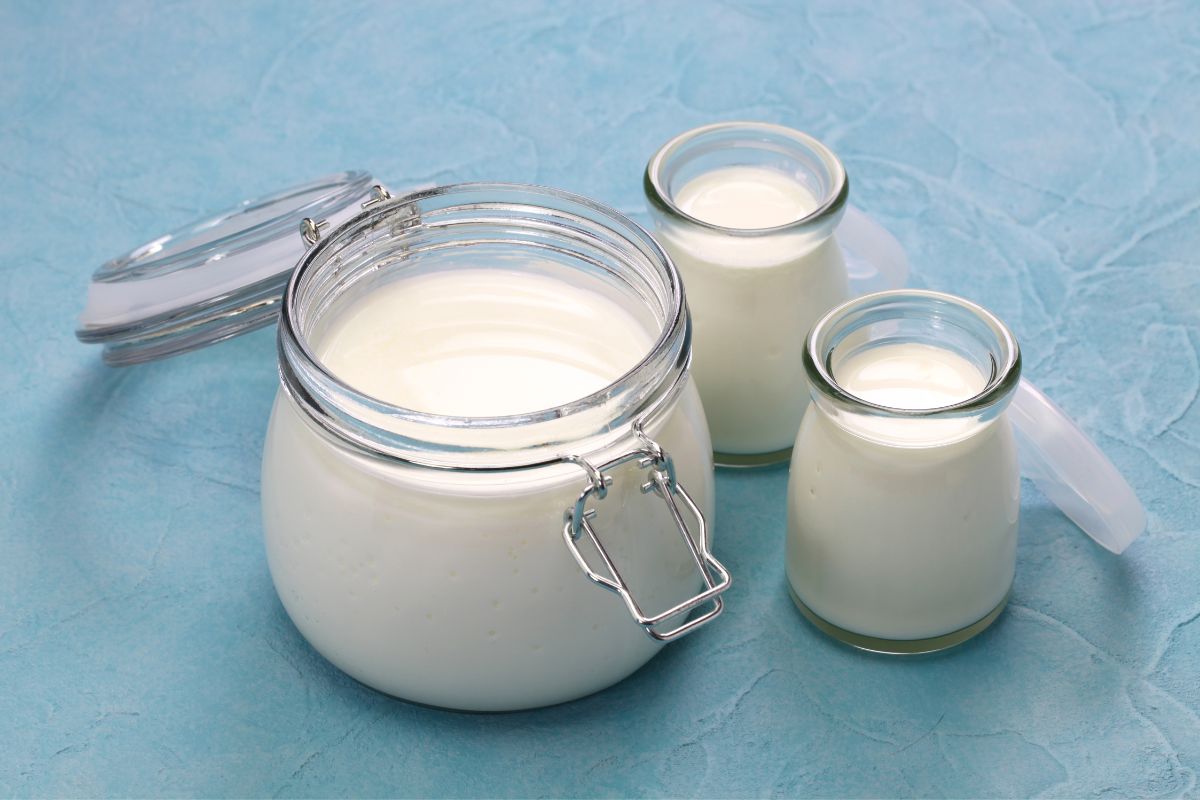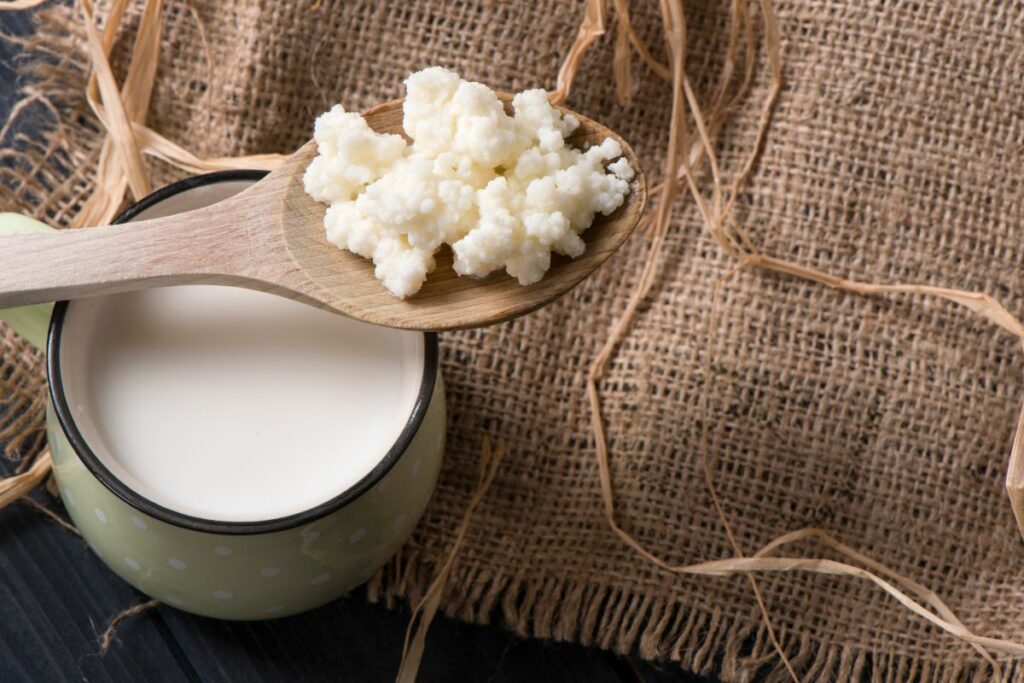Kefir is an increasingly popular drink due to its potential health benefits.
If you’ve recently gotten into kefir, or are curious about it as a potential dietary choice, you might be wondering how long you can keep it before it goes bad.
How long, exactly, does kefir last? Can it go bad? If there are the kinds of questions you’re wondering about, then you’ve come to the right place.
In this article, we’re going to give you a total rundown on the expiration of kefir.
We’ll give you some general information, explain how you can tell if your kefir has gone bad, and include some additional information that will help you to keep your drink preserved for longer periods of time.
We’ve also included a short Frequently Asked Questions section that will help answer any questions you may have left over at the end.
What Is Kefir?
Kefir is a fermented dairy product that has recently risen in popularity.
The recipe originated in the Caucasus region of Eastern Europe, and it’s made by a simple process of adding kefir grains to milk, then letting the mixture ferment for 24 to 48 hours.
The drink that comes as a result, has a tangy, tasty flavor that’s somewhere in between milk and yogurt.
Like many other ‘probiotic’ products, the fermentation process is what makes people believe it to be good for their health.
Kefir grains are a culture of yeast and bacteria, and the two of these work together to ferment the lactose in milk, creating lactic acid, alcohol, and carbon dioxide.
This process is said to create a series of helpful bacteria, as well as vitamins and enzymes.
Kefir is growing in popularity due to the potential health benefits that drinking it can give a person.
Some of these include a boost to your digestive and immune systems. It’s also a great source of minerals, phosphorus, and calcium.
It’s often seen as a good thing to drink if you suffer from IBS (irritable bowel syndrome) or other specific allergies.
Today, kefir is most commonly consumed on its own, or when added to all kinds of other food and drink products like smoothies or oatmeal.
You can buy kefir in all kinds of different flavors, many with additional ingredients that help to balance out the more neutral taste of the drink.
If you’ve recently gotten into kefir, then you might be wondering how long it lasts.
How Long Does Kefir Last For?

Like all food and drink products, kefir can eventually go bad. However, the shelf life of this product can depend on a series of external factors. We’re going to outline some of these for you in the sections below.
Temperature
The first thing you’re going to want to consider is the temperature at which the kefir you have is being stored in.
Because kefir is a fermented product, it can spoil if it is not stored at the correct temperature. The ideal storage temperature for most kinds of kefir is between 40oF and 50oF.
If you store it above this temperature range, then there’s a chance that the bacteria inside will continue to ferment and produce lactic acid.
This lactic acid will then cause your kefir to go sour and spoil—at which point it is no longer safe or pleasant for you to drink.
Container
The next thing you’ll need to think about is the container that the kefir you have is being stored in.
Glass is generally considered to be the best material for storing kefir,m because it does not react with any of the acidic environment created by the drink.
You can also opt for plastic containers, so long as they are food-safe and free from any dangerous chemicals.
You’re also going to want to make sure not to use a plastic container if it has any deep scratches or cracks, as this lets bacteria inside spoil your drink.
If you’ve bought packaged kefir, then this should work fine as a container, just make sure you follow the expiry information written on the packaging.
Shelf Life
So more on this, if you have purchased kefir manufactured by a company, then there is going to be a designated shelf-life.
Although this can sometimes be seen as more of a guideline than a strict rule, it’s best to follow this expiry date as best you can.
The main thing that affects the overall shelf life of kefir is the amount of alcohol that it contains.
High contents of alcohol will reduce the shelf life of your kefir, and this alcohol content increases as it continued to ferment.
Because of this, you’re going to want to try and consume your kefir fairly quickly after opening it.
You should know that in general, kefir will last for up to 10 days in the refrigerator, provided it is stored at the right temperature and kept within an appropriate container.
Once you get close to this ten day mark (say 7 days) we would recommend conducting a smell check to see if it smells sour.
You can also tell if your kefir has spoiled by tasting a small amount. If it has an unusually unpleasant or sour taste, then there’s a good chance that it has spoiled.
Final Thoughts
So in conclusion, kefir does go bad and will usually spoil within a 10-day timeframe provided it is refrigerated. It’s slightly longer-lasting than something like milk, but you’re going to need to make sure you keep an eye on it after 7 days have passed.
Consuming spoiled kefir can be dangerous to you, so it’s best to err on the side of caution. We hope that this guide has explained how kefir can spoil and that you’re not more confident about this issue.
If you still have some questions, make sure you check below for our short Frequently Asked Questions section.
Frequently Asked Questions
How Can I Extend The Shelf Life Of Kefir?
If you’ve created your own kefir, then there are a few things that people do to extend its shelf life.
One of these is to add preservatives like lemon juice or vinegar during the creation process.
Another thing that some people like to do is to add probiotic supplements to the kefir after it has been made. However, neither of these will extend its shelf life beyond a few days.
What Are Kefir Grains?
Kefir grains are what is known as a symbiotic culture of yeast and bacteria. They’re easily recognizable by their soft, slightly rubbery texture that most closely resembles cottage cheese.
They are often used repeatedly, since they grow and multiply with each batch that is made.
Kefir grains are considered by many to be a healthy food, as they contain beneficial bacteria, vitamins, and minerals that can help with a whole host of different health issues and promote a healthy lifestyle.
Kefir grains are most commonly used to make smoothies, salad dressing, or even ice cream! They are a versatile type of grain that is gaining in popularity across the wider world.








